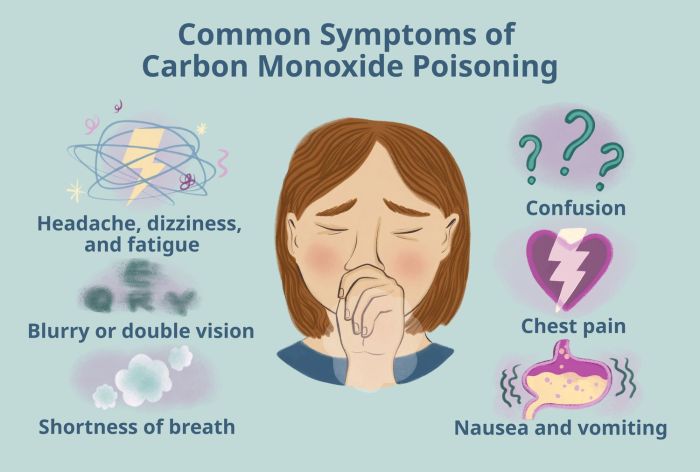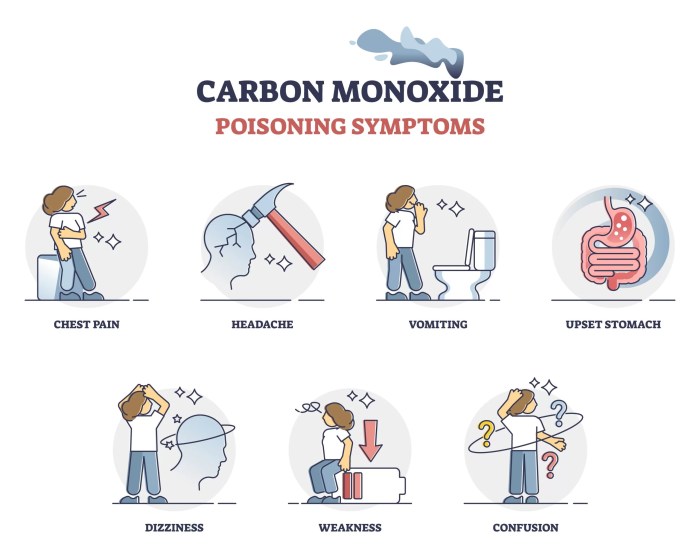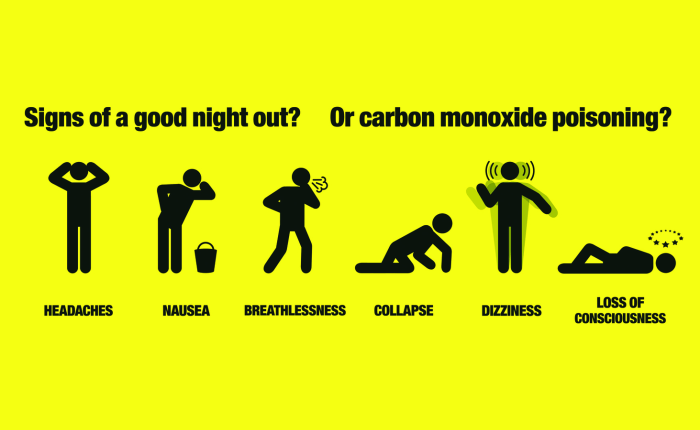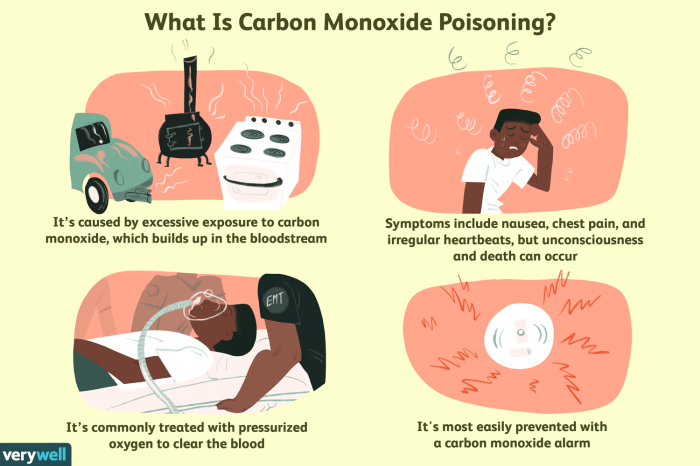Early symptoms of carbon monoxide poisoning boater exam – Delving into the realm of carbon monoxide poisoning, this article unravels the insidious nature of this silent killer, focusing specifically on the early symptoms that boaters need to recognize and respond to swiftly. With a comprehensive exploration of the topic, we aim to empower boaters with the knowledge and strategies to prevent and mitigate the risks associated with carbon monoxide exposure.
Carbon monoxide poisoning, a potentially life-threatening condition, arises from the inhalation of colorless, odorless carbon monoxide gas. It commonly occurs in enclosed spaces, such as boats, where combustion engines or other sources release the gas. Recognizing the early symptoms of carbon monoxide poisoning is crucial for boaters, as prompt intervention can prevent severe health consequences or even fatalities.
Carbon Monoxide Poisoning Overview: Early Symptoms Of Carbon Monoxide Poisoning Boater Exam

Carbon monoxide (CO) poisoning is a serious condition that can occur when someone breathes in carbon monoxide gas. CO is a colorless, odorless, and tasteless gas that is produced by the incomplete combustion of fuels, such as gasoline, propane, and natural gas.
It can be found in the exhaust of vehicles, generators, and other fuel-burning appliances.
Boaters are at risk of CO poisoning because CO can accumulate in enclosed spaces, such as cabins and engine compartments. CO can also be produced by generators and other fuel-burning appliances that are used on boats.
According to the National Institute of Environmental Health Sciences, an estimated 430 people in the United States die each year from unintentional CO poisoning. Of these deaths, about 10% occur on boats.
Early Symptoms of Carbon Monoxide Poisoning
The early symptoms of CO poisoning can be mild and easily overlooked. These symptoms include:
- Headache
- Dizziness
- Nausea
- Vomiting
- Fatigue
As CO poisoning progresses, the symptoms can become more severe. These symptoms include:
- Confusion
- Loss of consciousness
- Seizures
- Cardiac arrest
CO poisoning can be fatal if it is not treated quickly. If you suspect that someone is suffering from CO poisoning, call 911 immediately.
Risk Factors for Carbon Monoxide Poisoning, Early symptoms of carbon monoxide poisoning boater exam
There are several factors that can increase the risk of CO poisoning on boats. These factors include:
- Enclosed spaces: CO can accumulate in enclosed spaces, such as cabins and engine compartments. This is especially true when the boat is running in idle or at low speeds.
- Weather conditions: CO can be trapped in enclosed spaces when the weather is calm or there is no wind. This is because CO is heavier than air and it can settle in low-lying areas.
- Types of boats: Some types of boats are more susceptible to CO poisoning than others. For example, sailboats and motorboats with enclosed cabins are more likely to have CO problems than open boats.
Prevention of Carbon Monoxide Poisoning
There are several things that boaters can do to prevent CO poisoning. These include:
- Proper ventilation: Ensure that there is adequate ventilation in all enclosed spaces on the boat. This can be done by opening windows and hatches, or by using a fan or ventilation system.
- Carbon monoxide detectors: Install carbon monoxide detectors in all enclosed spaces on the boat. These detectors will sound an alarm if the CO level becomes too high.
- Regular maintenance: Regularly inspect and maintain all fuel-burning appliances on the boat. This includes checking for leaks and ensuring that the appliances are properly vented.
Treatment of Carbon Monoxide Poisoning
If you suspect that someone is suffering from CO poisoning, call 911 immediately. While waiting for help to arrive, you can take the following steps:
- Move the person to fresh air.
- Loosen tight clothing.
- Give the person oxygen if it is available.
- Monitor the person’s breathing and pulse.
Once the person is in the hospital, they will be given oxygen and other treatment as needed. The long-term effects of CO poisoning can vary depending on the severity of the poisoning. Some people may experience no long-term effects, while others may have permanent damage to their brain or heart.
FAQs
What are the mild symptoms of carbon monoxide poisoning?
Mild symptoms include headache, nausea, dizziness, and fatigue.
What should I do if I suspect carbon monoxide poisoning on a boat?
Immediately move to fresh air, call for emergency medical assistance, and ensure proper ventilation.
How can I prevent carbon monoxide poisoning on my boat?
Ensure proper ventilation, regularly service combustion engines, and install carbon monoxide detectors.


